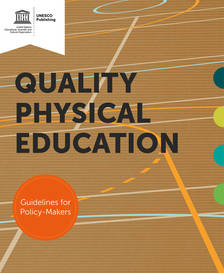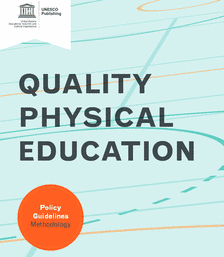Promoting Quality Physical Education Policy
Putting the Quality in Physical Education
Quality Physical Education (QPE) represents active, inclusive, peer-led learning. A tailored QPE programme supports students to develop the physical, social and emotional skills which define self-confident and socially responsible citizens.
Why is QPE key?
Closing the Policy-Practice Gap
To practically support governments develop inclusive, child-centered physical education policy which supports skills acquisition, UNESCO has developed a resource package in partnership with the European Commission, the International Bureau of Education (IBE), International Council of Sport Science and Physical Education (ICSSPE), International Olympic Committee (IOC), Nike, the United Nations Development Programme (UNDP), UNICEF and the World Health Organization (WHO).
Benefitting from the input of more than 50 organizations and individual experts, from all world regions, the Quality Physical Education policy package aims at:
The policy revision process:
Using the Guidelines, UNESCO and partners are supporting 4 countries (Fiji, Mexico, South Africa and Zambia) to develop inclusive, child-centered PE policies.
The revised policies promote physical literacy and values-based learning as part of rounded development and global education priorities.
The revision process prioritizes the engagement of diverse stakeholders involved in, and affected by, the QPE policy, via consultations designed to reflect grassroots perspectives in upstream policy frameworks.
The input and expertise of peer review countries, engaged to share global good practice and provide guidance in the policy development, are underpinned by rigorous national and international monitoring and evaluation of project implementation.
The delivery of Quality Physical Education is stated as a priority in two main policy areas (I.3 and II.3) of the Kazan Action Plan which was adopted on 15 July 2017 by UNESCO’s Sixth International Conference of Ministers and Senior Officials Responsible for Physical Education and Sport (MINEPS VI). Should you be interested in addressing this specific policy issue, you can consult examples thanks to the two online tools listed below for reference:
- To have access to the key documents developed during the policy revision process in the different QPE pilot countries and consult with the engaged national stakeholders, join the QPE E-teams on UNESCO’s Inclusive Policy Lab.
- To learn more on how is the QPE policy revision process implemented in the four pilot countries, click on the following map:






